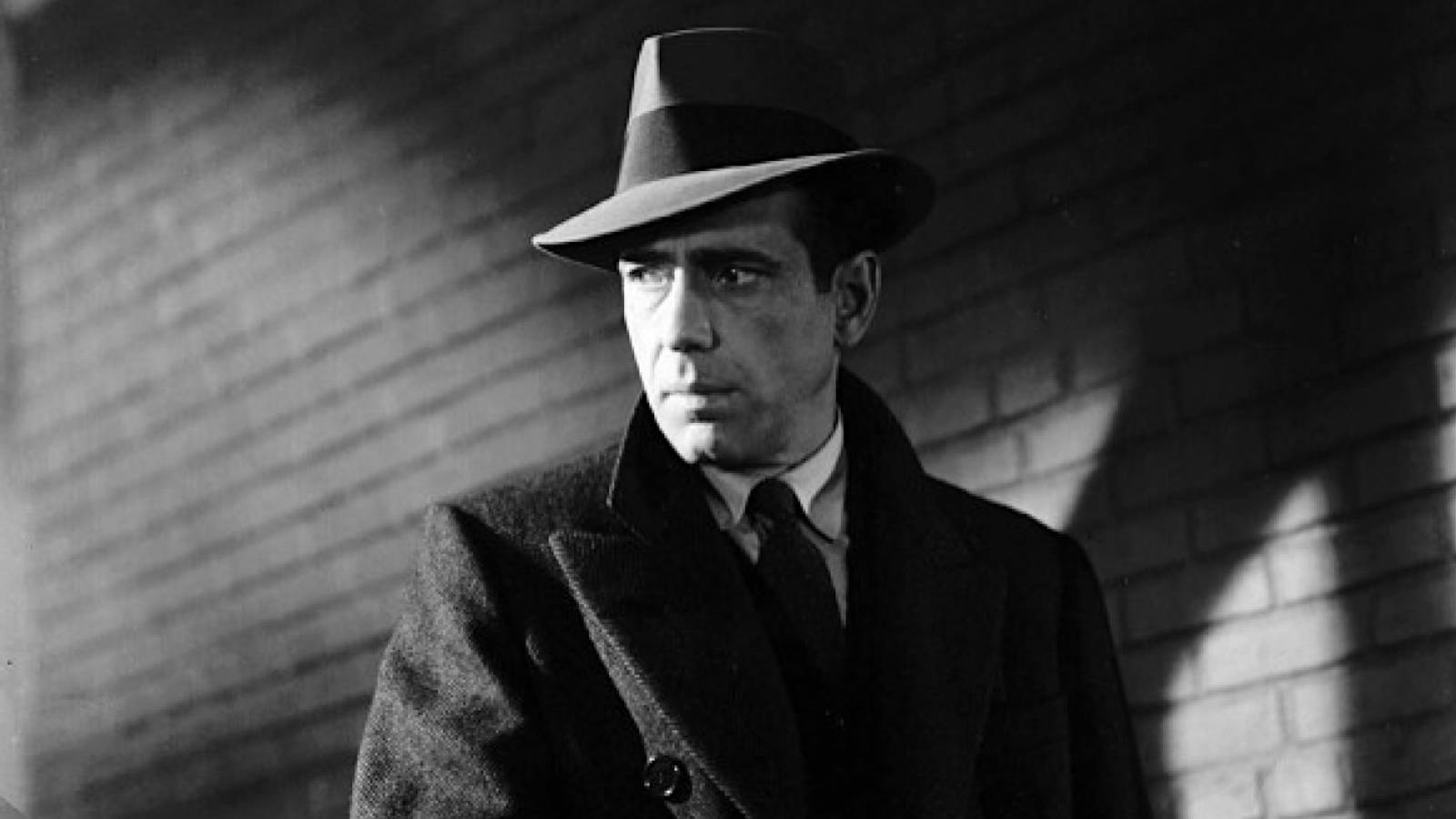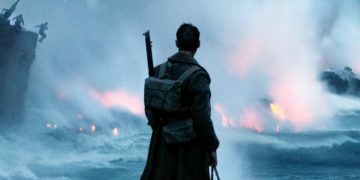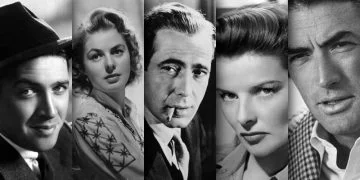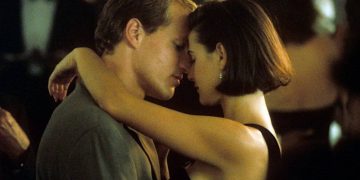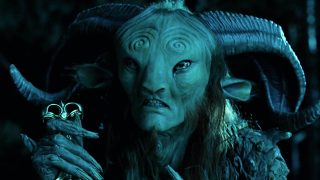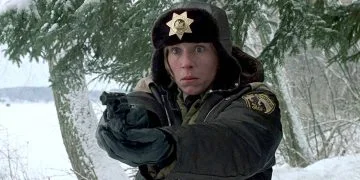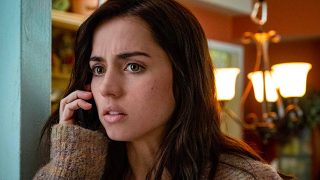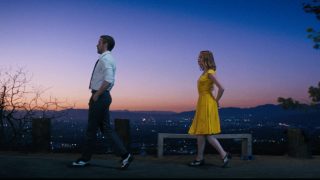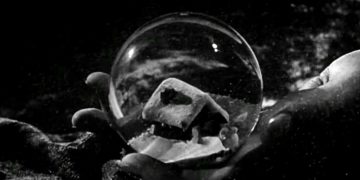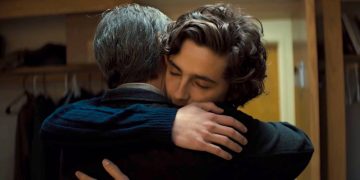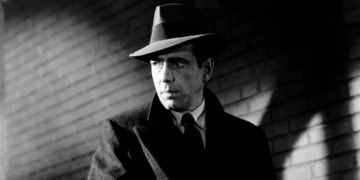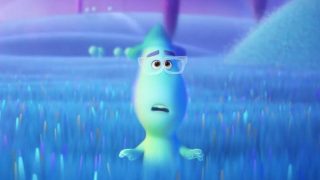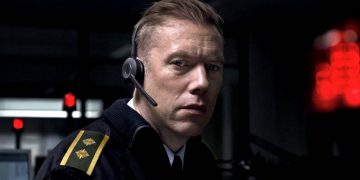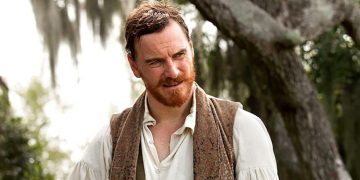Calling all film buffs and old movie fans! The 1940s was a great decade for all things film noir and B-movie.
Moving away from the theater-like melodramatics of earlier cinema, the 1940s were a pivotal time that introduced innovations to filmic language and established the foundation of what we know as cinema today.
From war dramas to festive classics, the 1940s gave us several enduring movies. Here are my picks for the best movies of the 1940s that are still popular and worth watching!
15. Children of Paradise (1945)
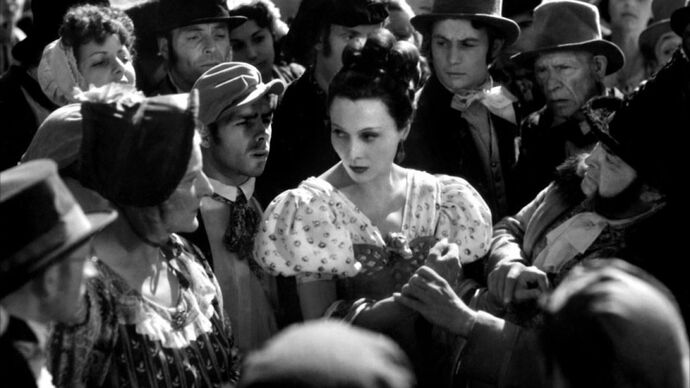
Directed by Marcel Carné
Starring Arletty, Jean-Louis Barrault, Pierre Brasseur
Drama, Romance (3h 9m)
Settle in for over three hours of French romance, unfolding inside a bustling 1840s Paris. Children of Paradise is split into two parts, which took a while to film due to wartime conditions in Vichy France and Occupied France between 1943 and 1945.
With huge names like François Truffaut, Truman Capote, and Marlon Brando praising this film as "the best movie ever made," it just speaks volumes to its brilliance.
At the center of Children of Paradise is Claire Reine (played by Arletty), a beautiful young courtesan (i.e. an upper-class prostitute) who's loved and pursued by four different men.
Marcel Carné is the director of Les Enfants du Paradis, which better translates to The Children of the Gods in English (because the title references the second balcony of theaters).
14. The Best Years of Our Lives (1946)
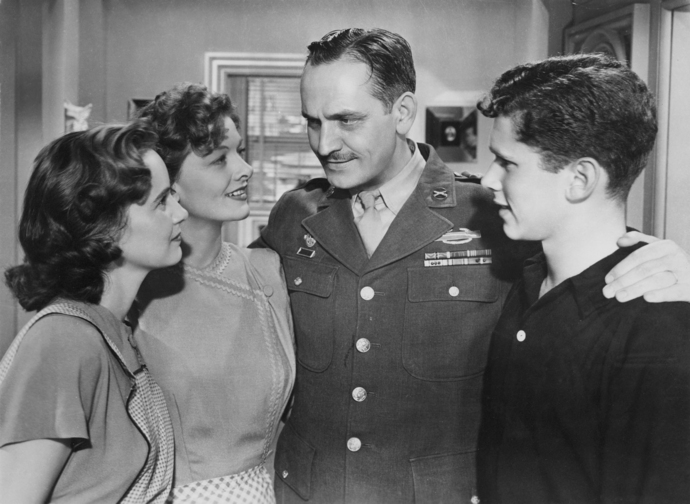
Directed by William Wyler
Starring Myrna Loy, Dana Andrews, Fredric March
Drama, Romance, War (2h 50m)
A heartwarming war epic from William Wyler, The Best Years of Our Lives follows three war veterans who return to civilian life after serving in the Second World War.
It's quite an adjustment after the chaos of the war-torn sea and skies; from USAAF bombardier to soda jerk, the three men struggle to integrate back into normal everyday society.
Harold Russell, Fredric March, and Dana Andrews star in this down-to-earth motion picture as its gallant themes and sensitive approach make it a movie way ahead of its time. The Best Years of Our Lives won not one, not two, but seven Academy Awards!
13. Meet Me in St. Louis (1944)
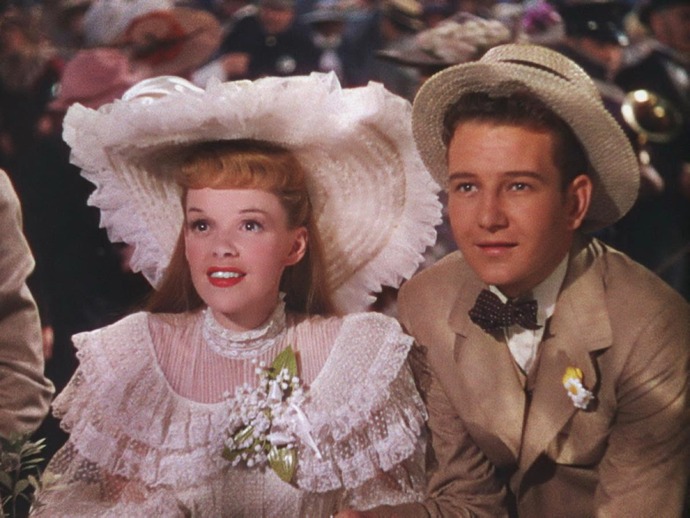
Directed by Vincente Minnelli
Starring Judy Garland, Margaret O'Brien, Mary Astor
Comedy, Drama, Family (1h 53m)
A Christmas musical perfect for any year, Meet Me in St. Louis will warm your cockles and have you feeling festive in no time. The 40s were all about comforting family flicks, and this film is no exception.
Directed by Vincente Minnelli under Metro-Goldwyn-Mayer (back when the studio had more control than the director), Meet Me in St. Louis stars Judy Garland as Esther, a young girl battling the woes of family, friendship, romance, and courtship in 1904 Missouri.
The film is divided into four vignettes (one for each season) and punctuated with a bunch of classic tunes you've probably heard before—including Garland's famous "Have Yourself a Merry Little Christmas."
A critical and commercial hit, Meet Me in St. Louis was MGM's most popular musical of the whole decade.
12. Brief Encounter (1945)
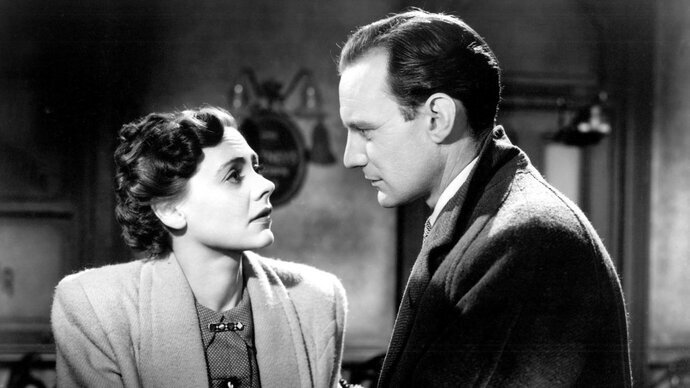
Directed by David Lean
Starring Celia Johnson, Trevor Howard, Stanley Holloway
Drama, Romance (1h 26m)
Brief Encounter is a classic black-and-white heartbreak movie to watch while eating ice cream straight out of the bucket. It's based on the one-act short play Still Life by Noël Coward, which David Lean turned into this gem of British cinema.
Many 1940s movies featured an affair central to the plot because adultery was a hallmark of the then-popular film noir genre. Even though Brief Encounter isn't exactly a film noir, it does feature noir-like shadows and immoral themes.
On the whole, though, Brief Encounter is a passionate (if short lived) romance between Laura (played by Celia Johnson) and Dr. Alec Harvey (played by Trevor Howard) in the run up to World War II.
11. The Grapes of Wrath (1940)
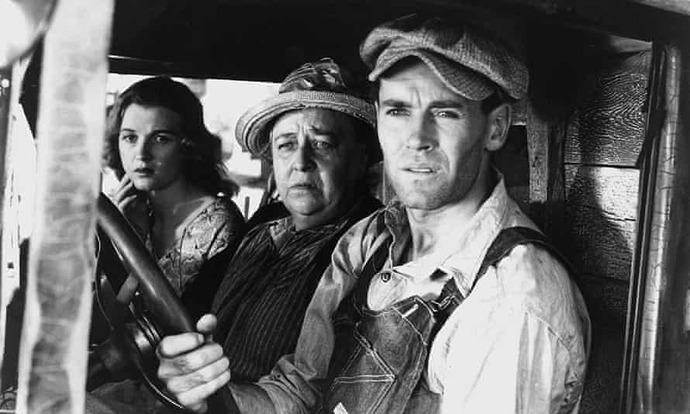
Directed by John Ford
Starring Henry Fonda, Jane Darwell, John Carradine
Drama (2h 9m)
John Steinbeck's famous 1939 novel The Grapes of Wrath was adapted into a movie by renowned filmmaker John Ford. The story focuses on the Joads family in Oklahoma who, like many Southern suburban families, fell victim to the economic collapse of the 1930s.
The hardships of the Great Depression force the family on the road, to become migrant workers in California. It's a grueling journey full of hunger, strikes, and death—which Ford captures perfectly.
Realism and melodrama are perfectly balanced, with Henry Fonda starring as the evicted farmer and doomed head of household.
10. To Be or Not to Be (1942)
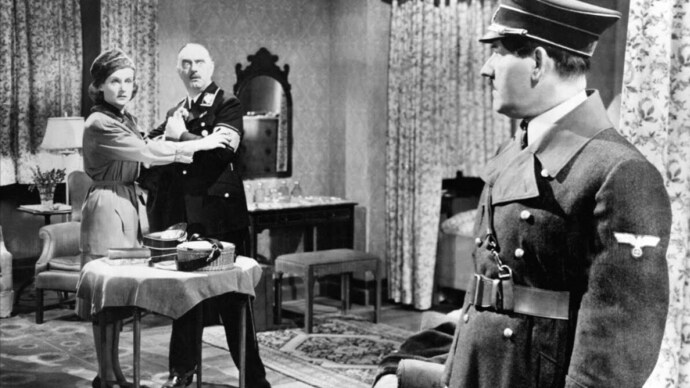
Directed by Ernst Lubitsch
Starring Carole Lombard, Jack Benny, Robert Stack
Comedy, Romance, War (1h 39m)
There have been a handful of successful comedies about world wars and totalitarian leaders, which is surprising given the grim subject matter. (Think Jojo Rabbit, The Death of Stalin, and The Interview.)
The key to success is making sure the humor is clean, sensitive, and self-aware, which Ernst Lubitsch did in To Be or Not to Be.
Here, a comedy troupe is placed in Nazi-occupied Warsaw, where they foolishly try to disguise themselves from occupational troops.
Of course, some viewers were bound to find the film in bad taste, and that includes the father of one of the stars, Jack Benny, who—once he gave it a go—ended up watching the film 46 times over!
9. Double Indemnity (1944)
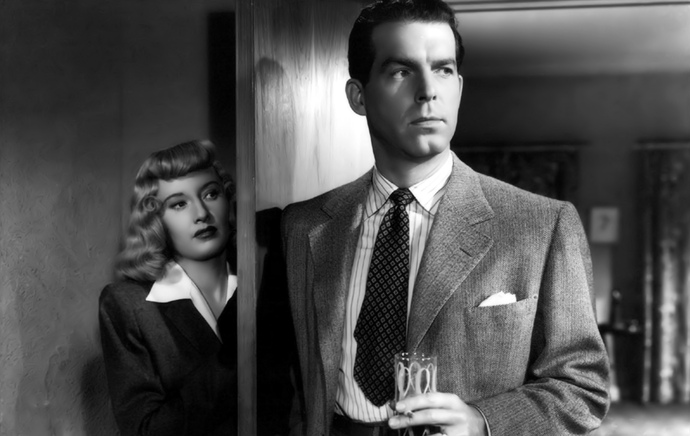
Directed by Billy Wilder
Starring Fred MacMurray, Barbara Stanwyck, Edward G. Robinson
Crime, Drama, Noir (1h 47m)
Based on James M. Cain's 1943 novel, Double Indemnity stars Fred MacMurray as an insurance salesman who's seduced into a murder plot by the alluring Phyllis Dietrichson (played by Barbara Stanwyck).
The case is put under investigation by Barton Keyes (played by Edward G. Robinson), where dark truths are brought to the surface.
Billy Wilder's psychological thriller was one of the first noir films ever made, defining the genre with its key conventions of the femme fatale, private investigator, shadowy atmosphere, and sinister storyline.
8. The Maltese Falcon (1941)
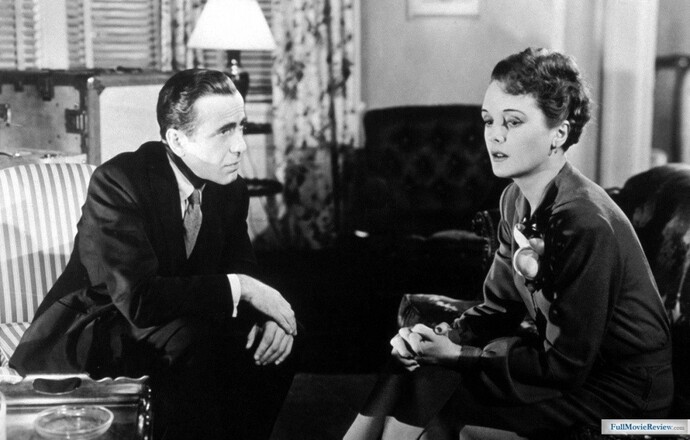
Directed by John Huston
Starring Humphrey Bogart, Mary Astor, Gladys George
Crime, Mystery, Noir (1h 40m)
Next to Jimmy Stewart, Humphrey Bogart was the main man of 1940s Hollywood. One of Bogart's most famous performances is in the crime-thriller The Maltese Falcon, directed by John Huston.
Like Double Indemnity, the illicit themes, private investigator protagonist, and black-and-white cinematography swimming in shadows all make The Maltese Falcon perfect for any film noir fan.
Bogart plays the private investigator Sam Spade, who's visited by Ruth Wonderly (played by Mary Astor) as a client looking for her sister.
This cover story proves to be a ruse, and Sam ends up embroiled in a mission to find a valuable statuette: the bejeweled Maltese falcon.
7. The Red Shoes (1948)
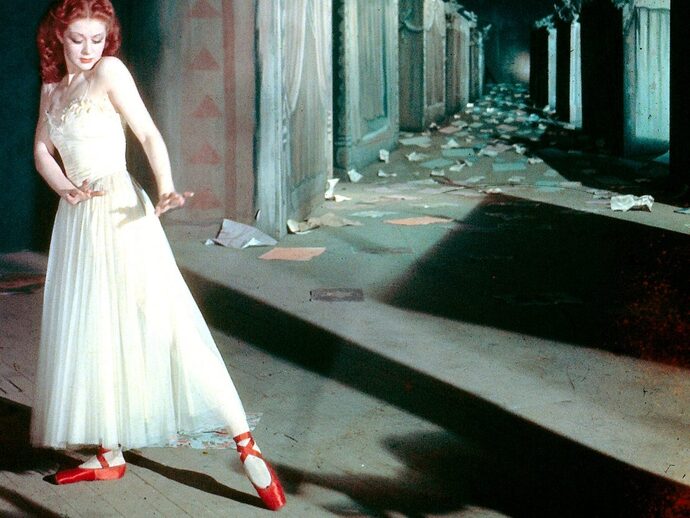
Directed by Michael Powell and Emeric Pressburger
Starring Anton Walbrook, Marius Goring, Moira Shearer
Drama, Music, Romance (2h 15m)
To dance or to fall in love? That is the question. Based on the 1845 fairy tale by Hans Christian Andersen, The Red Shoes tells the story of a ballerina torn between her career and her blustering romance with composer Julian Craster (played by Marius Goring).
Moira Shearer was already an established dancer before debuting in Michael Powell and Emeric Pressburger's movie collaboration, twirling herself on stage in a pair of red slippers that forge a will of their own.
The operatic drama received widespread critical acclaim and exemplifies an early use of the vivid Technicolor.
6. The Great Dictator (1940)
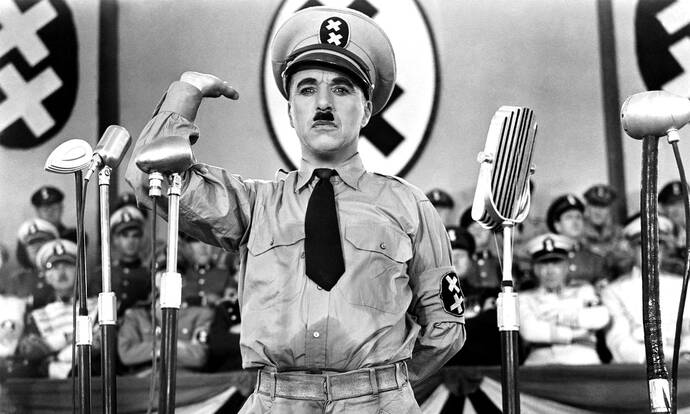
Directed by Charlie Chaplin
Starring Charlie Chaplin, Paulette Goddard, Jack Oakie
Comedy, Drama, War (2h 5m)
Charlie Chaplin's lovable persona of The Tramp appeared in most of his movies, from 1921's The Kid to 1936's Modern Times. But as brilliant as those films are, Chaplin's greatest work remains The Great Dictator, which doesn't feature The Tramp at all!
Here, Chaplin plays two opposing characters: a Jewish barber and the ruthless dictator Adenoid Hynkel. (If the name and mustache didn't give it away, Adenoid is a clear satire of Adolf Hitler.)
Chaplin had to be careful in how he handled this caricature, as it could've easily come across as insensitive to the still-fresh horrors of the Holocaust. But he struck a perfect balance between entertaining gags and timely (and timeless) messages of tolerance.
5. Bicycle Thieves (1948)
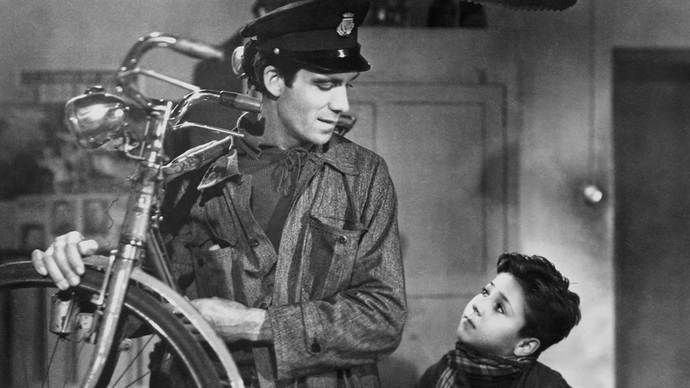
Directed by Vittorio De Sica
Starring Lamberto Maggiorani, Enzo Staiola, Lianella Carell
Drama (1h 29m)
Of all our picks, this is the one to watch if you're in the mood to bawl your eyes out. Bicycle Thieves is a father-son wartime movie based on Luigi Bartolini's 1946 novel, which has similar qualities to Roberto Benigni's Italian comedy-drama Life Is Beautiful.
Directed by Vittorio De Sica, Bicycle Thieves is a socioeconomic exploration of poverty in post-World War II Italy, where Antonio (played by Lamberto Maggiorani) must drag his son around in search of his stolen bike.
Most agree that Bicycle Thieves is the greatest film to come out of the Italian Neorealism movement, which gave voice to the working class and often filmed on-location with non-professional actors.
4. The Third Man (1949)
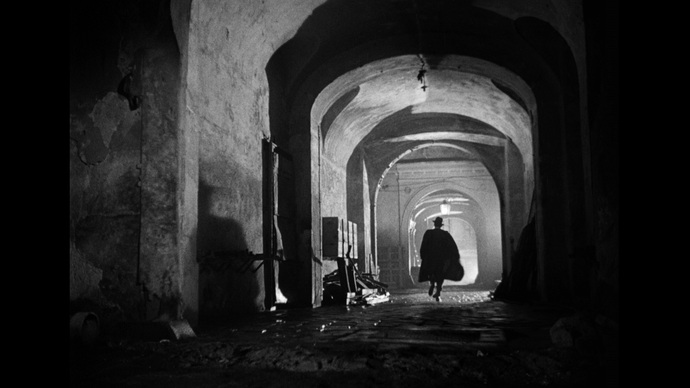
Directed by Carol Reed
Starring Orson Welles, Joseph Cotten, Alida Valli
Mystery, Noir, Thriller (1h 33m)
Orson Welles was one of the most prolific filmmakers of the 1940s, even causing quite the stir with his all-too-realistic radio broadcast of H. G. Wells's 1898 novel The War of the Worlds.
Citizen Kane is the filmmaker's most popular and studied work, but some of the more sophisticated critics prefer The Third Man, which unfurls in post-war Vienna (where most of the film was shot).
Like most film noirs of the time, The Third Man's visuals echo that of German Expressionism, adopting chiaroscuro lighting and a handful of Dutch angle shots.
Joseph Cotten stars as an American author who comes to Vienna to accept a job from his friend Harry Lime (played by Orson Welles), only to find out Lime has mysteriously died.
3. It's a Wonderful Life (1946)
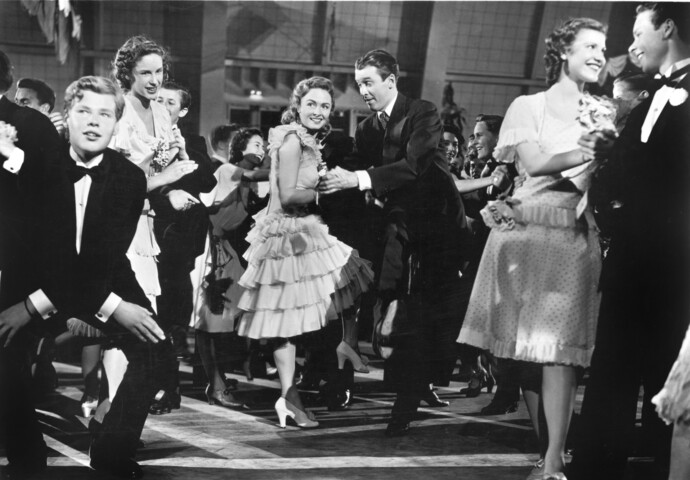
Directed by Frank Capra
Starring James Stewart, Donna Reed, Lionel Barrymore
Drama, Family, Fantasy (2h 10m)
It's a Wonderful Life could well be the greatest Christmas movie ever made. It's been referenced in pop culture countless times and played on pretty much every TV screen in any Christmas film made since.
Frank Capra's wholesome fantasy drama takes place on Christmas Eve in New York. After his career, finances, and dreams are shattered, George Bailey (played by James Stewart) contemplates suicide.
Luckily for him, a sweet old man named Clarence (played by Henry Travers) comes to save the day, claiming to be an angel.
George is shown what the world would have been like had he never been born, guiding him back to the light and reinvigorating his sense of purpose. How's that for inspirational?
2. Casablanca (1942)
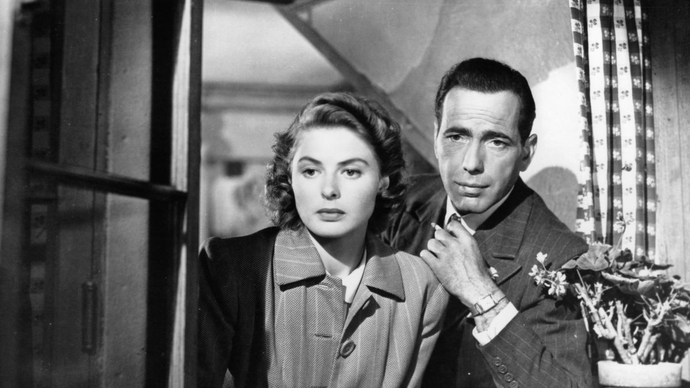
Directed by Michael Curtiz
Starring Humphrey Bogart, Ingrid Bergman, Paul Henreid
Drama, Romance, War (1h 42m)
Another Humphrey Bogart classic, this time playing an American expatriate during the Second World War. Rick Blaine is a nightclub owner in Casablanca. He's mysterious, brooding, and cynical, refusing to accept drinks from any of his customers.
But when his former lover Ilsa (played by Ingrid Bergman) arrives at the bar, Rick must choose between proclaiming his love for her or helping Ilsa get smuggled out of Casablanca with her new husband.
Despite its A-list cast, nobody expected Casablanca to become quite the enduring icon. It won multiple Academy Awards and steadily gained its status as one of the greatest films ever made.
Michael Curtiz's romance-drama explores universal themes of love and sacrifice, but also acts as a reflection on political feelings of the time. The ending in particular has stuck with audiences... even 80 years later!
1. Citizen Kane (1941)
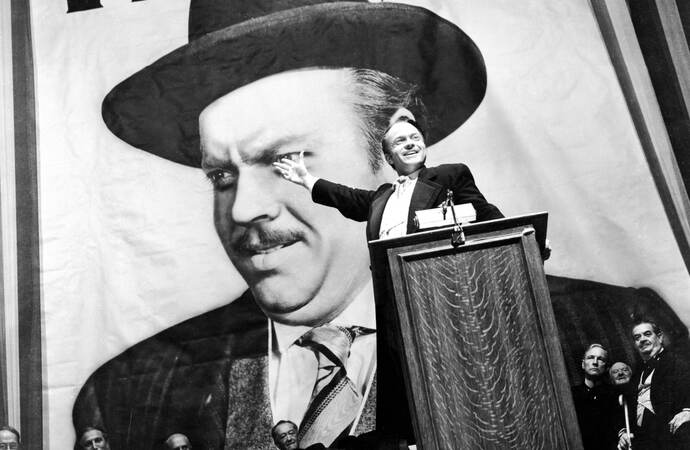
Directed by Orson Welles
Starring Orson Welles, Joseph Cotten, Dorothy Comingore
Drama, Mystery (1h 59m)
Citizen Kane isn't just Orson Welles's most famous movie. It's often cited as the best film ever made. That's mainly due to its revolutionary use of the film medium—both narratively and technologically—particularly in how Welles famously used deep focus.
Citizen Kane recounts the life of newspaper tycoon Charles Foster Kane, whose cryptic final words cause much intrigue.
Reporter Jerry Thompson (played by William Alland) is sent to investigate the meaning of the phrase "Rosebud," which Kane whispered while on his death bed.
The quasi-biographical film was controversial at the time, clearly using real-life media barons as inspiration for Kane's anti-heroic character. But that only made its daring release that much more exciting!
Keep going with our complete series of articles on all the most popular and iconic movies by every decade:
